In-store sales this holiday season are expected to grow, and with the unemployment rate being under 4% at the moment, retailers have to be smart about hiring seasonal employees.
This begs the question: How do you outsmart your competitors and hire the best possible people to run your store during the peak shopping season?
Continue reading to find out!
What’s in?
- Estimate your seasonal hiring needs
- Timing is key
- Be clear about the schedule and compensation
- Allow candidates to apply for multiple roles and/or different locations
- Reach out to your talent pool
- Build a solid recruitment funnel
- Think about how you’re hiring
- Make hiring easy for store managers
- Make the money count
- Stay within the law
- Create a pre-boarding plan
- Manage job expectations
Like what you see?
Don’t miss out. Subscribe to our quarterly digest to get the latest TA and TM resources delivered right to your inbox.
1. Estimate your seasonal hiring needs
Look at your sales data from previous years as well as projected retail spending trends. Using this info, you can better estimate the amount of traffic you’ll receive.
Then consider varying factors. For example, are you planning on holding the same size sale as you did last year? Or are you planning on expanding your offer?
With a clearer idea of how busy your shop will be, you can better judge your seasonal hiring needs.
Now, talk to current employees to see what schedules they have. Can they take up extra shifts during the holiday season if necessary? You’ll probably find that some employees will be glad of the extra work, especially if you’re organized about scheduling it.
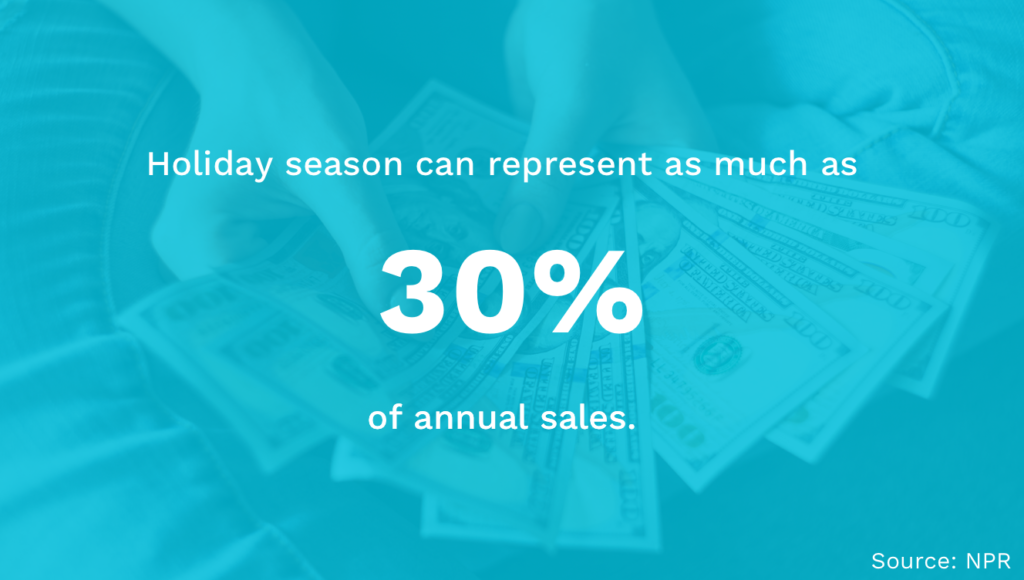
Holiday season is extremely important for retailers such as apparel, hobby, toy and game sellers, as the months of November and December contribute almost a third of annual revenue for them.
2. Timing is key
Determine when you need extra help and work backward. This will give you a sense of when to start hiring. Why not consider planning a season ahead? If you know the arrival dates of your new stock and want to plan a significant sale before then, schedule time to recruit fresh talent well in advance. Don’t hesitate too much. Your competitors have probably started already.
Think about where your seasonal employees come from? Are they college students? If so, they’ll start looking for seasonal work before their term ends. Some retailers start hiring as early as June. For example, big-box retailer Kohl’s usually begins hiring for the second half of the year in June and July already.
3. Be clear about the schedule and compensation
Will your seasonal employees be on-call, have flexible schedules or fixed hours? Make it clear in your job postings when you want them to work: weekends, evenings, holidays, etc. Also, explain the kind of contract you offer your seasonal employees. No employee, temporary or permanent wants to feel confused or unsure about their working hours.
What compensation package do you offer? What is the hourly rate you’re offering and are there any other benefits? For instance, do you offer commuter benefits or employee discounts on merchandise?
Last but not least, be absolutely clear about what the role is. Have a targeted job description. For example, if a seasonal position requires someone to do the heavy lifting, you must say so.
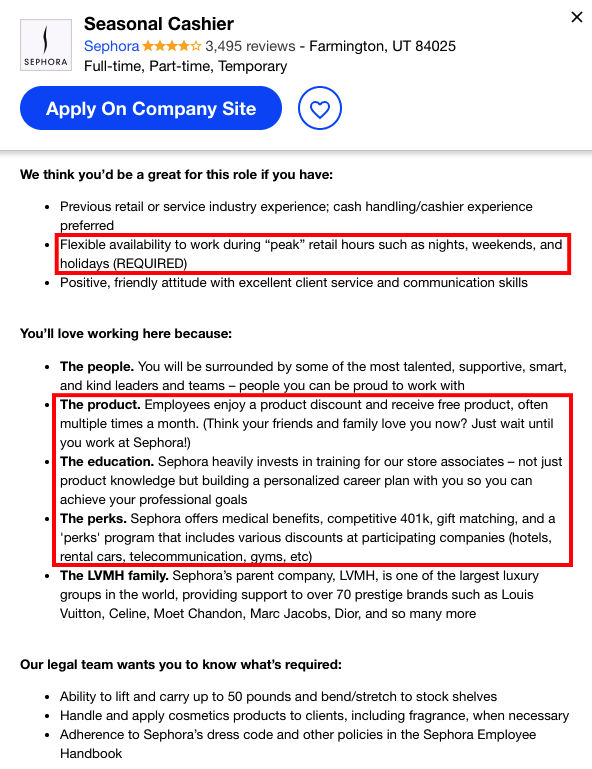
Sephora clearly outlines the schedule of the seasonal cashiers, as well as the benefits it provides to its employees.
4. Allow candidates to apply for multiple roles and/or different locations
Do you have more than one store in a particular town, city or region? Many seasonal employees understand the flexible nature of their work and will happily apply for jobs in more than one location to have more chances to actually get hired. The added benefit of this is that you’ll find it easier to match applicants to open roles and distribute your workforce across your stores more effectively.
Make your application process short, to the point and mobile-friendly. Two-thirds of job seekers wish it would take them 20 minutes or less to fill in an application, so don’t waste their time with long, boring forms.
- White paper
Before you continue!
Don’t forget to grab your free copy of our new white paper on the digital transformation of retail volume hiring. Learn about:
- The challenges currently shaping the retail volume hiring space
- How to align your recruitment strategy with today’s reality by adopting technology
- The four building blocks of a fully digital recruitment process

5. Reach out to your talent pool
Keep records of seasonal staff members who have previously worked for you, and keep in touch with them once a quarter. All it takes is one group email to keep them updated about when you’re hiring next. Don’t forget to give a specific deadline for them to tell you whether they’re interested.
You could also take a look at past candidates who were unsuccessful with their previous application. Perhaps you were inundated with tons of suitable candidates all in one go, and consequently, a few prospects slipped through the net? If you still have a good feeling about them, pick up the phone and ask if they’re interested in reapplying for seasonal work.
Or you could ask existing team members if they know anyone they’d recommend for the job. Implement a hiring referral scheme in your workplace. Offer team members a small bonus or voucher/store discount for every recommendation they make that results in a successful hire.
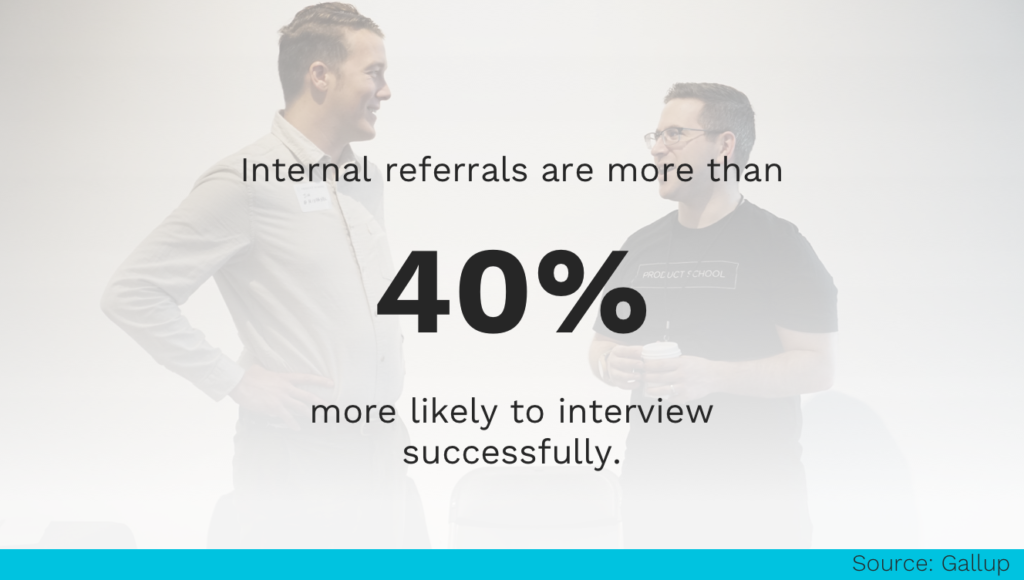
Employee referral scheme will help you hire your seasonal employees faster and spend less money on the recruitment process.
6. Build a solid recruitment funnel
Make sure you’re not losing applicants throughout the recruitment process. Most probably, you’re using multiple recruitment channels to source your retail employees, including your company website, online job boards, but also walk-in applications. Applicants from all the sources should land in your candidate database. You can achieve this by directing all applicants to a dedicated landing page where they can apply, or straight to your online assessment, whether it is through a link or a QR code at your store. This will help you avoid overlooking qualified candidates.
Remember, most candidates applying for seasonal work want and expect a quick response. So, don’t leave it weeks before contacting applicants. Ensure your recruitment team acknowledges applications, even if it’s just an automated email response. This should inform the candidate about your hiring timeline.
In addition to that, state in your ad the closing date for applications. You should also mention when you plan on kickstarting your interview process. Perhaps insert something like this in your ad: “If you haven’t heard from us by [date], your application has been unsuccessful on this occasion. We wish you all the best.”
If a candidate manages to get an interview, give them a set time to come in and see you and make it clear how long the meeting will be. As we’ve already said, no one likes to be messed around!
Top Tip: Ensure your interview questions are clear and open. Don’t use questions that elicit a “yes” or “no” response. For instance, ask for examples of how and where they’ve performed the kinds of tasks you’re asking them to fulfil. Look for specific characteristics and focus on your candidates’ customer orientation.
All the above may not sound like much, but you’ll be amazed at how many more applicants you’ll retain by putting this advice into action.
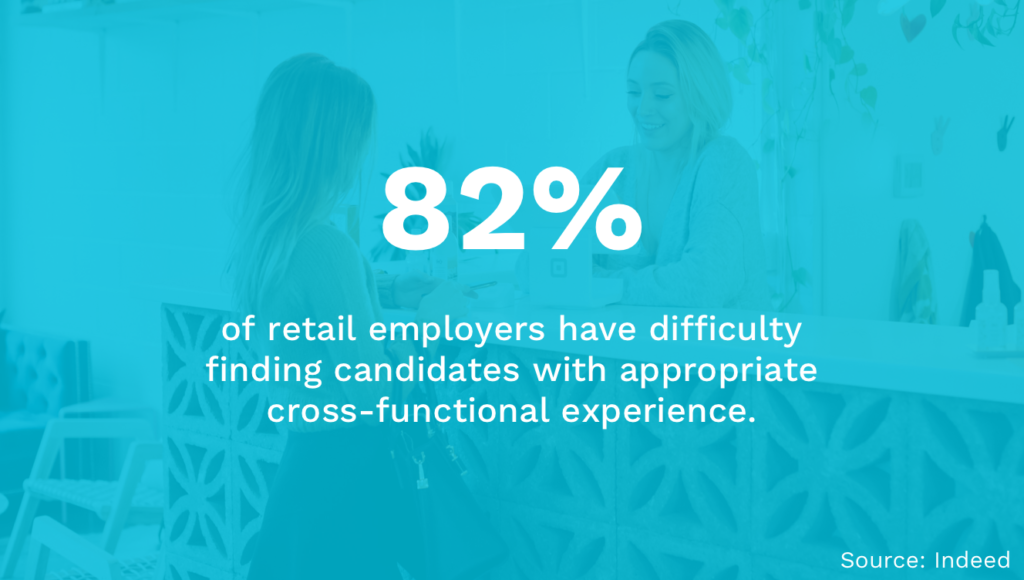
When a majority of retailers have problems finding the right candidates, you can’t afford to lose candidates throughout the recruitment process. Make sure to consolidate your sources and communicate with your candidates in a timely manner.
7. Think about how you’re hiring
Have you been using the same recruitment methods for years?
If so, that needs to change.
Start assessing each year whether or not your conventional methods are still working for you.
If you haven’t already, update your website. Have a link from the home page to your hiring page. You can also try adding a ‘we’re hiring’ message on till receipts and have signs advertising vacancies in the windows of your stores.
Advertise where you know likely candidates will see your recruitment ads. For example, contact career centers on college campuses, but do it early!
Or, have you considered hiring retirees who want to make some extra money during the holiday season without being tied down? A retiree with a lifetime’s work experience can bring a lot to the table.
Another way to promote your seasonal openings is programmatic job advertising, which can help you get your job ads in front of the right audiences.
Be sure to keep track of where the best (and worst) candidates have come from. These days, it’s essential you’re data-driven and strategic in your hiring practices. Ask existing employees and returning seasonal hires why they work for you. It may be hard to hear their reasons, but it’ll help you retain staff and recruit new hires in the long term.
Building the right recruitment tech stack goes a long way when hiring (not only) seasonal employees. Paper resumes and boring application forms won’t cut it anymore. Choose a powerful ATS and combine it with an assessment platform to gather information on your candidates skills and availability. That way, you’ll be able to keep track of your applicants and hire based on data rather than on mere guesses.
You should also keep an eye on how people review your business online. After all, happy staff won’t give your business a one-star rating! Prospects check employee review sites to see how others enjoyed working for the potential company before taking the plunge themselves.
Let prospects know why they should work for you. What stands out about your company? Let’s face it; even if you’re recruiting seasonal staff, they’ll still want to know the employee culture you’re fostering. Are there staff nights out or bonus schemes, what about loyalty programs for returning seasonal staff? What are your company’s ethical credentials? All of these count!
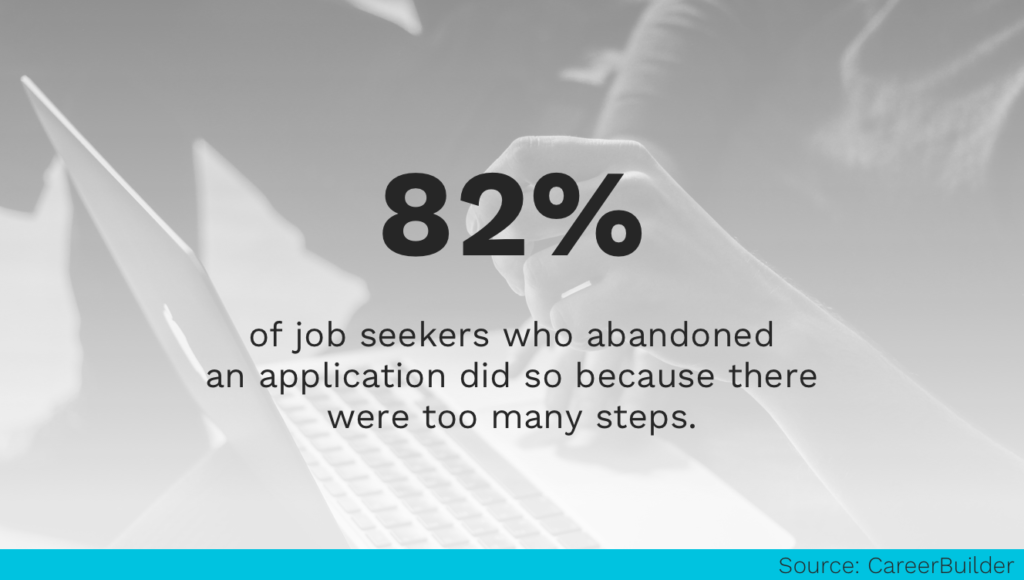
…and yet, only 37% of employers haven’t reviewed their own application process from the candidates’ point of view. Reviewing your application and hiring process regularly will help you make your recruitment game more efficient.
8. Make hiring easy for store managers
Retail hiring is often decentralized and taken care of within the stores, with store managers responsible for the recruitment process.
Store managers are busy people. So, adding even more to their plate with cumbersome processes won’t endear you to them! Keep your recruitment process straightforward and as accessible as possible.
For example, do you have a mobile-friendly application overview so that your store managers can check the applications on the go? Can they receive notifications when new applicants come in?
When you’re considering purchasing recruiting software, check out what functionality it offers to the users and how it can make the life of your store managers (and recruiters) easier.
Don’t forget to encourage store managers from the same area to share and collaborate over possible candidates. A person may not be a suitable fit for one store due to their availability, but be perfect for another. Or, one manager may have all the staff they need. If this occurs, they could send their extra applicants to managers who are short of staff. Setting up a shared candidate base will boost the collaboration opportunities for your store managers.
9. Make the money count
Remember, money is just as crucial to seasonal hires and your permanent staff, sometimes more so. The bottom line is seasonal workers mind about the money. Look at Amazon, who raised its hourly rate to $15 in the US and £9.50 in the UK. If your company is in a position to pay an excellent hourly rate and you know it’s more than what your competitors offer, shout this from the rooftops!
10. Stay within the law
Abide by your state’s legislation and regulations around employment. Specifically on the subject of hours, overtime, minimum wage, health insurance, and rules governing the work of under 18s.
11. Create a pre-boarding plan
When you recruit seasonal staff, chances are they’ll all be starting at roughly the same time and date. Even if they aren’t, try and arrange it, so they start close to one another. That way, you can give them the same info and training in one go.
Before your newly hired staff step foot through the door, email them their contracts. You should also specify the do’s and don’ts associated with their role. Do you have virtual training available for new staff? If so, send that over too and be clear that new hires have to complete their online pre-boarding training and awareness course before they start.
You should also ensure you have enough uniform in stock. Ask for their sizes in advance and order in any pieces you need. You can’t expect workers to wear gear that doesn’t fit them properly!
Be transparent with new employees which documents they need to bring with them on their first day. To save time, if you’re able to ask new hires to hand these documents in a week or so ahead of time, great! That way, they can hit the ground running on their first day.
12. Manage job expectations
You’re hiring seasonal staff, so be clear about that. It’ll make things way less difficult for you in the longer term. You don’t want to give employees false hope they’ll be kept for longer than what they’re contracted to. As you can imagine, these unmet job expectations could get messy.
Communicate clearly in your advertising, website, job description, and throughout the recruitment and onboarding processes what the job is, how long it’s for, how much it pays, and what hours and shift times you’re offering. Motivated staff who understand their role in the organization = a happy and productive team.
On the subject of job satisfaction, consider setting up an “ambassador/buddy” scheme. By this we mean, staff who are keen to move up the management ladder, but aren’t quite there yet, can gain valuable experience by acting as a “buddy” for new seasonal hires. Any questions? Go to your buddy! Simple.
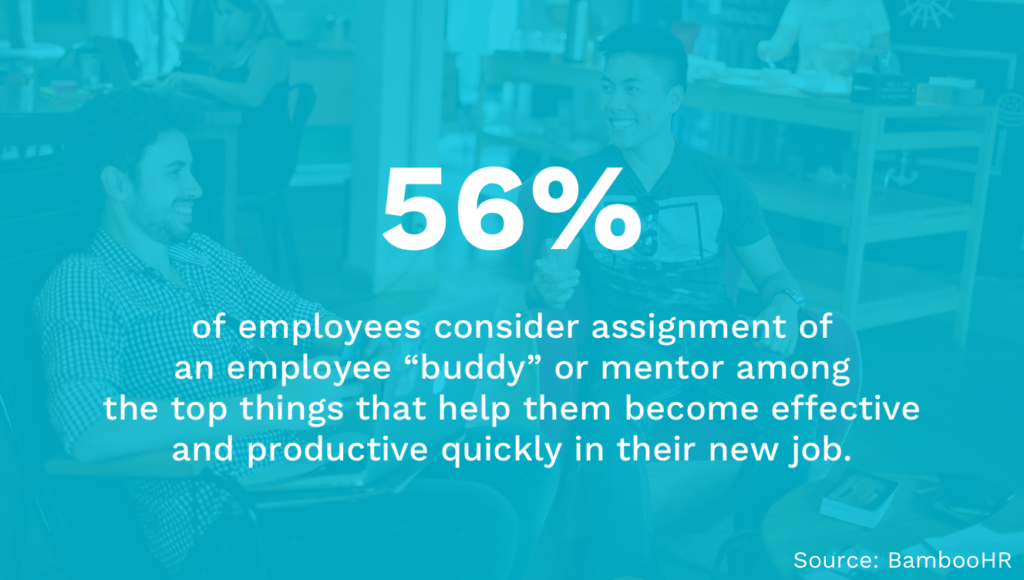
Buddies or mentors will also help manage your new hires’ job expectations but showing them the ins and outs of the new role.
Ready to start hiring seasonal employees for your store(s)?
Hiring seasonal employees for retail is challenging and can be time-consuming. However, you can make your life and that of your existing staff much easier by being prepared. Just like your marketing and sales strategies, planning your approach to recruitment is essential for staying ahead of your competitors!
Ready to transform your hiring process?


